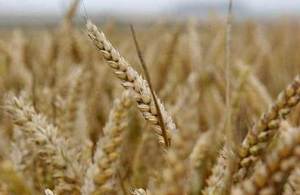Food and farming key to Britain's economic future
Environment Secretary hails role of British agriculture in Oxford Farming Conference speech.

A crop field
Britain has the land, technology and entrepreneurial flair to lead the world in food and farming, Elizabeth Truss said today.
Speaking at the Oxford Farming Conference, the Environment Secretary said the £100 billion industry was at the core of the government’s long-term economic plan and detailed the actions being taken to ensure a flourishing future for British food and farming.
This includes promoting British exports, cutting red tape and better protecting our country from animal and plant disease to make a real, practical difference to farmers’ working lives.
Environment Secretary Elizabeth Truss said:
Farming is a high-tech powerhouse at the heart of our long-term economic plan, vital to our country’s future security.
We have the entrepreneurs and go-ahead farmers to ensure this, taking pride in our heritage to forge a future based on innovation, technology and the quality of our great British food.
Over recent months we have seen fresh evidence of why we are right to be both ambitious and optimistic for the industry this year and in the future. Sales of English and Welsh wine are on course to break the £100 million barrier this year. Beer exports are also breaking records, with more than a billion pints of beer sold abroad for the first time.
No ambition is too high for British food and farming.
Since 2010, the government has signed deals to open 600 food markets abroad, while British food and drink exports have gone up 7% since 2010, reaching £19 billion.
The Bonfield Report launched by the Prime Minister and Environment Secretary has made it easier for public sector schools, hospitals and canteens to buy high-quality local food, helping British producers win more of a £400 million market.
From April, it will be easier for shoppers to know the origin of their food, when packaged meat will have to carry a label showing the country where it was reared and slaughtered.
The government has also maintained Britain’s world-class disease scientific capability by protecting the number of vets and expanding its investigatory capacity. This includes research to identify what genes make the best beef cattle, which is expected to contribute to £150 million a year in improved farm profits.